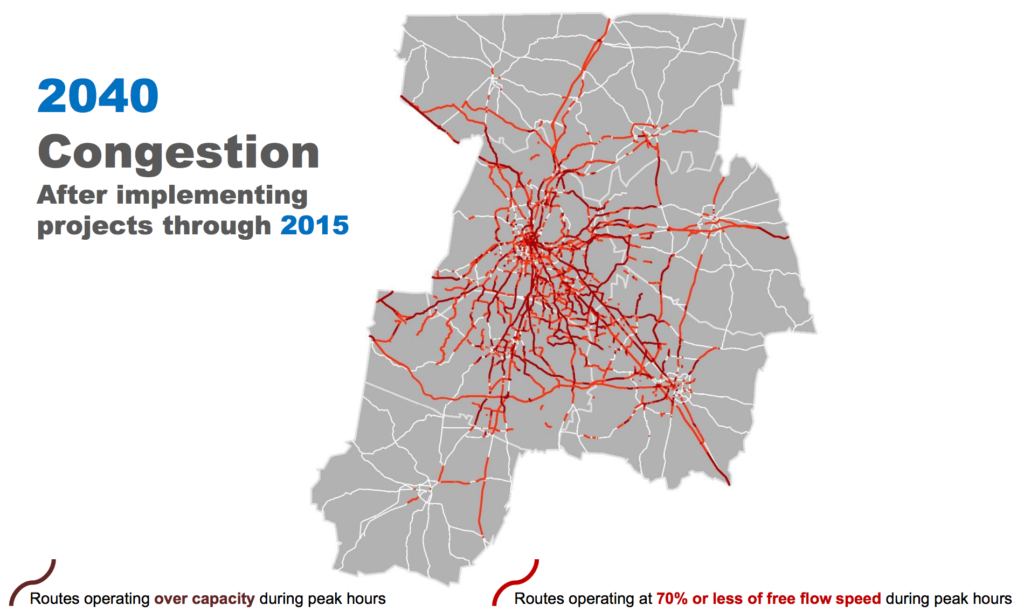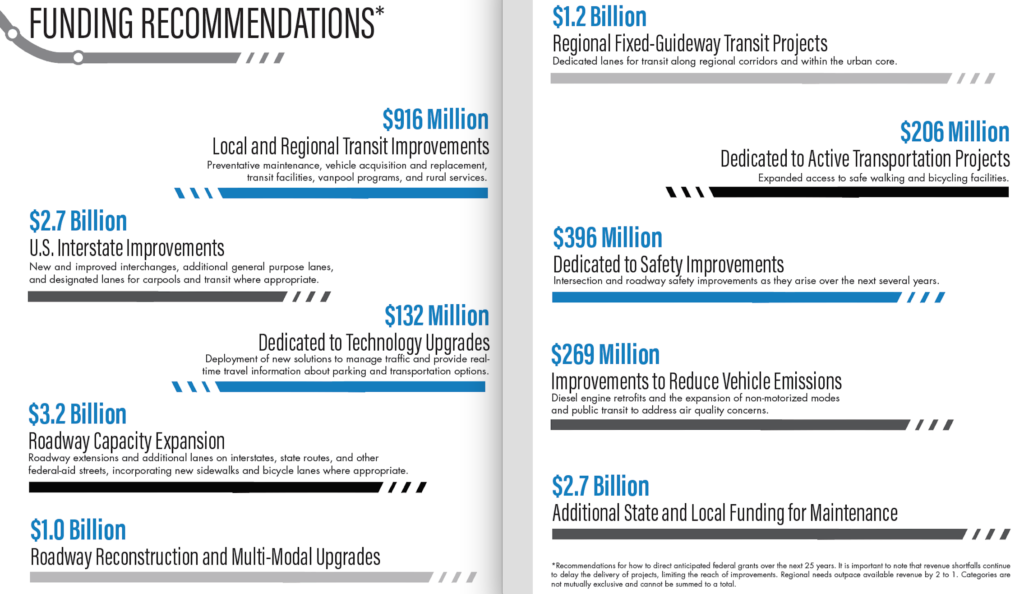
For the first time, Middle Tennessee will put real money into regional mass transit. A new 25-year transportation plan, adopted Wednesday, includes $1.2 billion to explore connections between Nashville and Franklin, Murfreesboro, and Gallatin.
In all, the “Connected” regional plan spells out how almost $8.5 billion should be spent through 2040, as divided up and overseen by the Nashville Area Metropolitan Planning Organization.
With the full list of projects, the MPO’s plan balloons to more than 300 pages – but it was approved without dissent by the group’s executive board of local mayors and transit leaders.
More: Browse the list of funded projects (search keywords to look for those near you)
MPO Executive Director Michael Skipper says spending the money the same old way won’t outrun the congestion, so more money must go to transit options with their own routes that bypass traffic.
“People realize that these construction projects that do nothing more than just add lanes … we get to live two years through congestion, and then the facility opens, and it’s almost at the same levels of congestion that we were at before,” he says.
 Nashville MPO
Nashville MPO The MPO forecasts a doubling of congestion – defined as volume of traffic and travel speeds – by 2040.
About five years ago, the MPO added transit to its plan for the first time. This update now adds financial backing for transit systems that operate outside of vehicle traffic.
That’s increasingly important, Skipper says, because the seven-county MPO area is projected to add 1 million more people in 25 years. That means twice as much traffic congestion and time spent in cars, according to MPO forecasts.
More: Browse MPO growth and congestion forecasts
In turn, the rallying cry that the MPO says it heard during its public listening tour is that transportation projects can no longer rely on “business as usual” ideas.
“This MPO plan is not business as usual,” said Marc Hill, the chief policy officer at the Nashville Area Chamber of Commerce. “It is looking toward the future – an important building block.”
MPO staffers say they heard a similar urgency from hundreds who attended public presentations, including Mike and Mary Morin, who moved from the Chicago suburbs to Smyrna.
“We’re used to an environment where you had multiple choices for transportation options,” Mike Morin said. “We’re just curious because there’s not much here. … For events, (transit) would be great, because parking can be a hassle sometimes – and expensive.”
Murfreesboro insurance agent and bicycle commuter A.J. Farley also weighed in after touring the MPO’s displays and maps.
“I’m just struck by the obvious need for … transportation facilities that are not automobiles,” he said. “So many folks from Rutherford County lose hours of their lives back and forth stuck in traffic.”
Farley would like better buses and maybe light rail. So far, the MPO plan doesn’t say which types of transit could come but puts money toward detailed studies.
The largest share of the money still goes to road widening and road extensions – increasingly with sidewalks and bike lanes. There’s also a budget for technologies that manage traffic or inform drivers about conditions in real time.
Yet for all that is included in the plan, it still came across to some as severely limited by funding, Skipper said.
“What most people feel when they look at our plan is that what we can do with that amount of money is pretty underwhelming,” he said, “especially in a region like ours that’s growing pretty rapidly.”
 Nashville MPO
Nashville MPO Here’s how the Nashville MPO plans to use about $8.5 billion in federal money (with about 20 percent local matching funds).
9(mda2nzqwotg1mdeyotc4nzi2mzjmnmzlza001))

